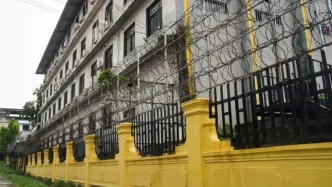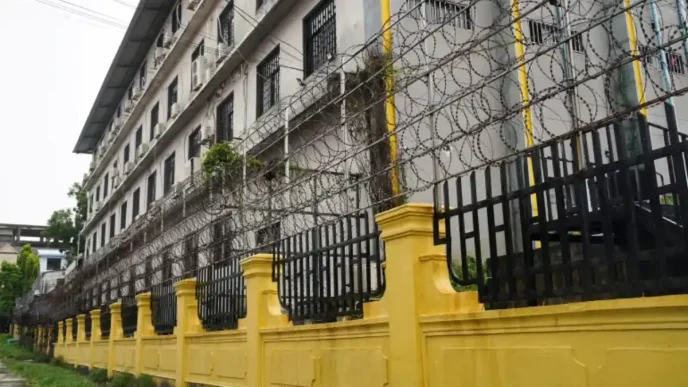In a significant move toward reforming its nationality laws, Vietnam’s National Assembly (NA) Standing Committee discussed a draft amendment to the Law on Vietnamese Nationality on Monday, April 29, 2025. The proposed changes, which would allow foreign individuals applying for Vietnamese citizenship to retain their current nationality, have sparked both optimism and concern among lawmakers and legal experts. While the amendment aims to attract talent and simplify citizenship processes, strict conditions remain to safeguard national security and political interests.
A Shift Toward Dual Nationality
The draft amendment marks a notable departure from Vietnam’s historically stringent stance on citizenship. Under the proposed changes, foreign applicants could maintain dual nationality upon receiving approval from the State President and meeting government-set conditions. This provision is intended to make Vietnam a more attractive destination for foreign investors, scientists, and experts, as well as to ease the reintegration of overseas Vietnamese into society.
Minister of Justice Nguyễn Hải Ninh emphasized that the regulation is designed to balance openness with caution. “The regulation ensures political security and national interest” he stated during the session, highlighting the government’s intent to prevent potential risks associated with dual citizenship. For instance, individuals with dual nationality would be barred from participating in Vietnam’s elected bodies, political agencies, or serving in the military or police force. Additionally, permanent residence in Vietnam is a mandatory requirement for applicants.
However, flexibility is built into the draft. Special cases, as approved by the government, could bypass some restrictions, allowing Vietnam to recruit outstanding talents into the public sector. This exception clause has been met with cautious approval, though questions remain about how such cases will be defined and evaluated.
Streamlining Citizenship for Specific Groups
The draft amendment focuses on two key policy areas. First, it seeks to simplify citizenship procedures for individuals with close ties to Vietnam, such as those whose biological parents or grandparents are Vietnamese citizens. This measure also extends to foreign investors, scientists, and experts deemed beneficial to Vietnam’s development. Second, it aims to facilitate the reinstatement of Vietnamese nationality for those who have lost it, a move expected to reduce statelessness among overseas Vietnamese communities.
During the discussion, the NA’s Legal and Judicial Committee expressed general support for these policies but urged caution regarding exceptions. Committee Chairman Hoàng Thanh Tùng stressed the need for a thorough review of existing laws to ensure alignment, particularly on shifting requirements from mandating sole Vietnamese citizenship to simply being a Vietnamese citizen. This subtle change in wording could have significant implications for how citizenship is interpreted and enforced in the future.
Officials also called for clearer conditions surrounding the reinstatement of citizenship. Protecting the rights of overseas Vietnamese to reclaim their nationality remains a priority, but the lack of specificity in the current draft has raised concerns about potential loopholes or inconsistent application of the law.
Balancing Openness with National Security
The proposal to allow dual nationality reflects Vietnam’s broader efforts to integrate into the global community while addressing domestic needs. By easing citizenship rules, the government hopes to attract skilled individuals who can contribute to economic and technological advancement. For example, foreign experts working on critical infrastructure projects or overseas Vietnamese returning with significant investments could find the process more accessible under the amended law.
Yet, the restrictions on political participation and military service underscore Vietnam’s unwavering focus on national security. The government remains wary of potential conflicts of interest or divided loyalties, particularly in sensitive sectors. This cautious approach is consistent with Vietnam’s political system, where the Communist Party of Vietnam (CPV) maintains tight control over governance and security apparatus.
Legal experts note that Vietnam is not alone in grappling with the complexities of dual citizenship. Neighboring countries like Thailand and Singapore also impose strict limitations on dual nationals in political and military roles, reflecting a regional trend of prioritizing sovereignty over individual freedoms in such matters. However, Vietnam’s proposed exceptions for special cases suggest a willingness to adapt, albeit within carefully defined boundaries.
Public and International Reactions
While the draft amendment has yet to be finalized or opened for broader public consultation, initial reactions from legal scholars and overseas Vietnamese communities suggest a mixed response. Many welcome the prospect of easier citizenship or reinstatement processes, particularly for those who have maintained cultural and familial ties to Vietnam despite living abroad. For stateless individuals of Vietnamese descent, the changes could offer a long-awaited pathway to legal recognition and stability.
Conversely, some express skepticism about the practical implementation of the law. The requirement for permanent residence, for instance, may deter foreign applicants who maintain professional or personal commitments elsewhere. Additionally, the lack of clarity around “special cases” has led to speculation about whether the exception clause could be exploited or applied unevenly.
Internationally, the draft law aligns with global trends toward more flexible citizenship policies, particularly in nations seeking to attract talent amid competitive economic landscapes. Countries like Canada and Australia have long embraced dual citizenship as a means of fostering diversity and innovation, though often with caveats similar to those proposed in Vietnam. Observers suggest that Vietnam’s reforms, if passed, could signal a gradual shift toward greater openness, even as the government remains vigilant about protecting its political core.
Historical Context and Future Implications
Vietnam’s nationality laws have historically been shaped by periods of conflict, migration, and political transformation. Following the Vietnam War, many citizens fled the country, resulting in large diaspora communities across North America, Europe, and Australia. Over the decades, the government has made incremental efforts to reconnect with these communities, often through cultural programs or economic incentives. The current draft amendment represents a more concrete step toward reintegration, addressing legal barriers that have long hindered overseas Vietnamese from reclaiming their roots.
At the same time, the proposed changes arrive amid Vietnam’s rapid economic growth and increasing global integration. With foreign direct investment playing a critical role in sectors like manufacturing and technology, the government sees value in creating a legal framework that encourages international collaboration. Dual citizenship, even with its limitations, could serve as a bridge between Vietnam and the global talent pool, potentially boosting innovation and economic diversification.
However, the road to implementing these reforms is not without challenges. The NA Standing Committee’s discussions reveal a tension between progressive policy goals and the preservation of national identity. Lawmakers must navigate public opinion, legal precedents, and geopolitical considerations to craft a law that satisfies diverse stakeholders. The call for clearer conditions and alignment with existing legislation suggests that further revisions are likely before the amendment reaches a final vote.
Looking Ahead
As Vietnam’s National Assembly continues to deliberate on the draft amendment to the Law on Vietnamese Nationality, the balance between openness and security remains a central theme. The proposed changes hold the promise of modernizing citizenship policies to reflect Vietnam’s evolving role on the global stage, yet they also underscore the government’s commitment to safeguarding its political and cultural foundations. Whether these reforms will ultimately reshape Vietnam’s relationship with its diaspora and foreign talent remains an open question, one that will likely fuel debate in the months ahead.














